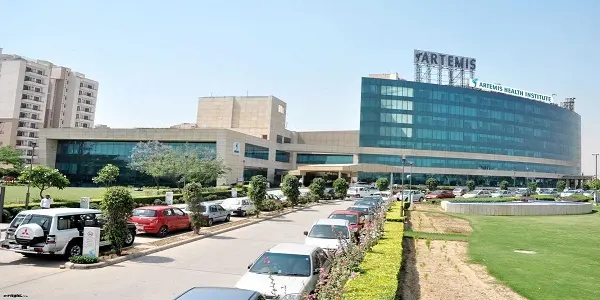Kidney health is vital to life, yet millions worldwide face the threat of kidney failure every year. For those diagnosed with end-stage renal disease, a kidney transplant offers the best chance at renewed health and longevity. In recent years, India has rapidly emerged as a leading destination for kidney transplants, attracting patients from across the globe.
Get a free cost estimate
India’s top kidney transplant hospitals combine world-class medical infrastructure, internationally trained nephrologists and urologists, and affordable treatment packages—making high-quality care accessible to international patients. With a proven track record of high success rates and comprehensive patient support, India is now recognized as one of the best countries for kidney transplant surgery.
This guide highlights the top 10 kidney transplant hospitals in India for 2025, providing international patients and their families with trusted options for safe, effective, and affordable kidney transplant procedures.
Get a free cost estimate
Why Choose India for Kidney Transplant?
India has rapidly become a preferred destination for kidney transplant patients from around the world, offering a unique combination of advanced medical expertise, state-of-the-art facilities, and cost-effective treatment.
- World-Class Medical Expertise:
- Advanced Healthcare Infrastructure:
- High Success Rates:
- Cost-Effective Treatment:
- Seamless Medical Tourism Experience:
India is home to highly skilled nephrologists and transplant surgeons with extensive experience in complex kidney transplant procedures. Many doctors are internationally trained and stay updated with the latest advancements, ensuring excellent patient outcomes.
Top kidney transplant hospitals in India boast cutting-edge technology, including robotic surgery, advanced diagnostics, and modern operation theaters. These facilities adhere to international standards, providing safe and precise surgical care.
With one-year survival rates often exceeding 90%, India’s kidney transplant programs deliver outcomes comparable to the best global centers. Comprehensive post-operative care and lifelong follow-up support contribute to these impressive results.
The cost of kidney transplant surgery in India is significantly lower than in Western countries, often by 50-70%, without compromising quality. Affordable hospital packages, lower medication costs, and reduced travel expenses make India an economical choice for international patients.
Hospitals catering to international patients offer personalized services, including visa assistance, travel coordination, language support, and accommodation arrangements. This patient-centric approach ensures a smooth and stress-free transplant journey.
Choosing India for a kidney transplant means accessing world-class care at a fraction of the cost, supported by compassionate medical teams dedicated to restoring health and improving quality of life.
Top 10 Kidney Transplant Hospitals in India for 2025
India is globally recognized for its excellence in kidney transplant surgery, offering advanced technology, internationally trained specialists, and affordable care. Here are the top 10 kidney transplant hospitals in India for 2025, trusted by both domestic and international patients for their expertise, high success rates, and patient-centric services.
1. Max Super Specialty Hospital, Vaishali (New Delhi)
Address: W-3, Sector 1, Vaishali, Ghaziabad, Uttar Pradesh 201012
Established: 2002 | Beds: 370+ | Accreditations: NABH, FICCI Healthcare Excellence Award
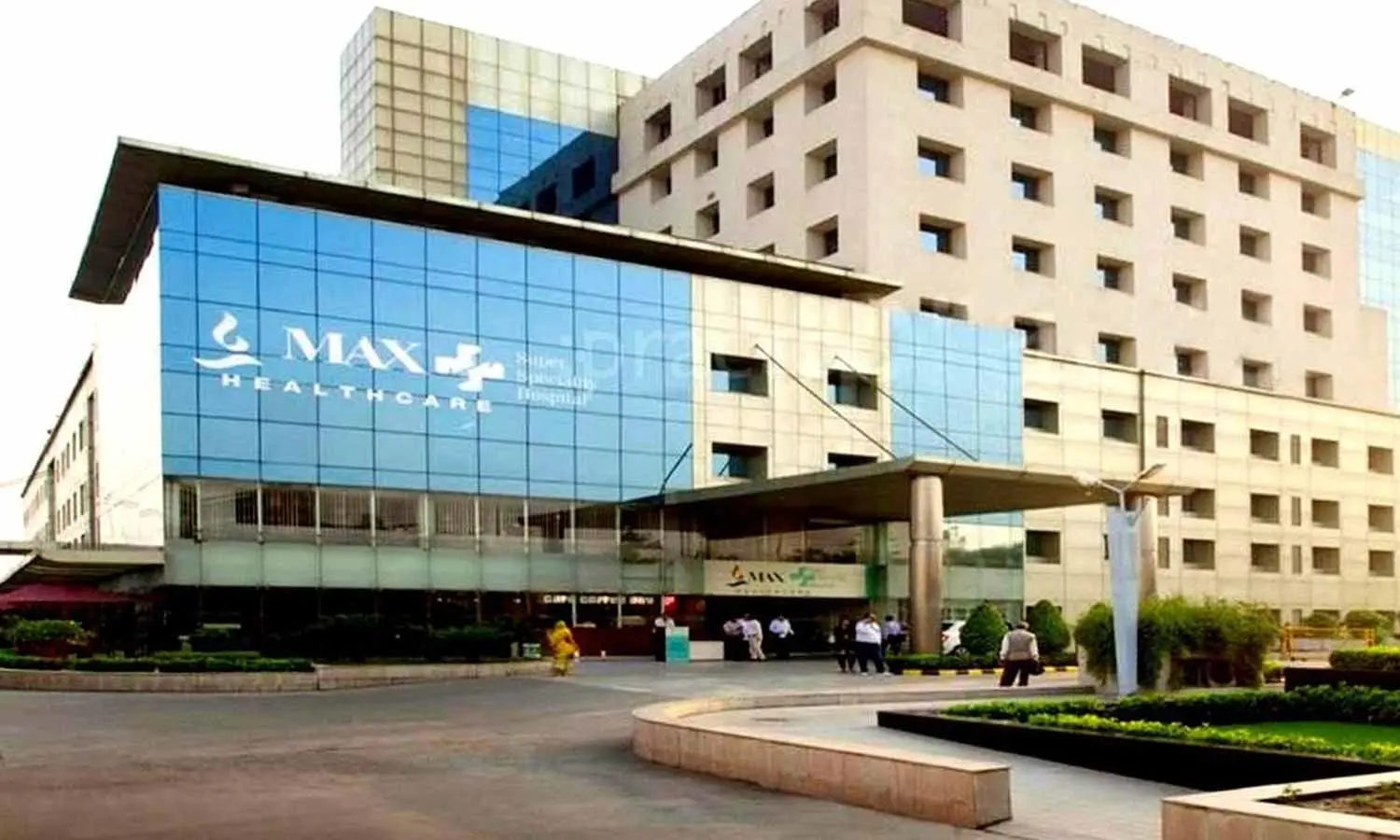
Kidney Transplant Highlights:
- Advanced renal transplant program with robotic surgery and 24x7 dialysis backup
- Expertise in both living and deceased donor transplants, including ABO-incompatible cases
- Max Hospital has international patient desk for seamless care, visa assistance, and multilingual support.
2. Sahyadri Hospital, Deccan Gymkhana (Pune)
Address: 30-C, Erandwane, Karve Road, Pune, Maharashtra 411004
Established: 2004 | Beds: 200+ | Accreditations: NABH, Times Health Achievers Awards
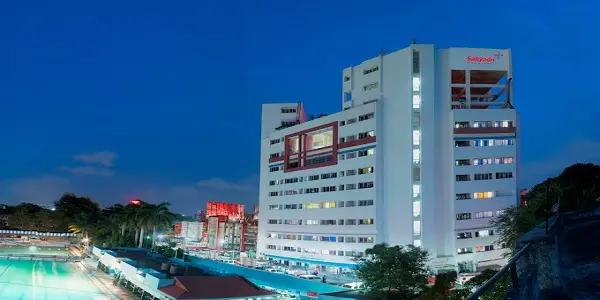
Kidney Transplant Highlights:
- Sahyadri Hospital Pune is renowned for affordable transplant packages and experienced multidisciplinary teams
- Success in high-risk and complex cases, including diabetic and hypertensive patients
- Dedicated international patient services and medical tourism support
3. Artemis Hospital (Gurugram)
Address: Sector 51, Gurugram, Haryana 122001
Established: 2007 | Beds: 550+ | Accreditations: JCI, NABH, MTQUA (Medical Tourism)
Kidney Transplant Highlights:
- Comprehensive transplant services including high-risk and ABO-incompatible transplants
- State-of-the-art labs for HLA typing and immunosuppressive therapy
- International patient department for smooth coordination and support
4. Kokilaben Dhirubhai Ambani Hospital (Mumbai)
Address: Rao Saheb Achutrao Patwardhan Marg, Four Bungalows, Andheri West, Mumbai, Maharashtra 400053
Established: 2009 | Beds: 750+ | Accreditations: NABH, India Healthcare Awards by CNBC TV18
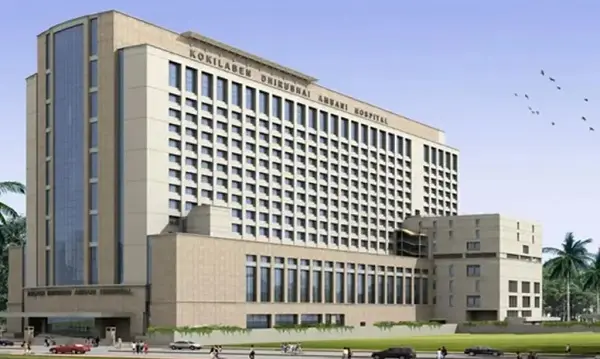
Kidney Transplant Highlights:
- Kokilaben Dhirubhai Ambani Hospital Mumbai has a dedicated renal sciences department with world-class transplant suites
- High success rates for both pediatric and adult transplants
- Comprehensive international patient program and language assistance
5. Fortis Hospital, Bannerghatta Road (Bangalore)
Address: 154/9, Opposite IIM-B, Bannerghatta Road, Bangalore, Karnataka 560076
Established: 2006 | Beds: 276 | Accreditations: JCI, FICCI Safety Awards
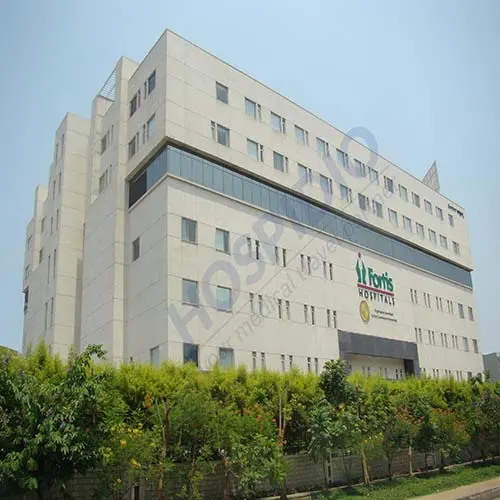
Kidney Transplant Highlights:
- Fortis Hospital is leader in robotic and minimally invasive kidney transplant surgeries
- Efficient deceased donor program and advanced HLA-matching technology
- International patient services including visa, travel, and accommodation support
6. Manipal Hospital, Dwarka (New Delhi)
Address: Sector 6, Dwarka, New Delhi, Delhi 110075
Established: 2018 | Beds: 380 | Accreditations: NABH, AHPI Excellence in Medical Tourism
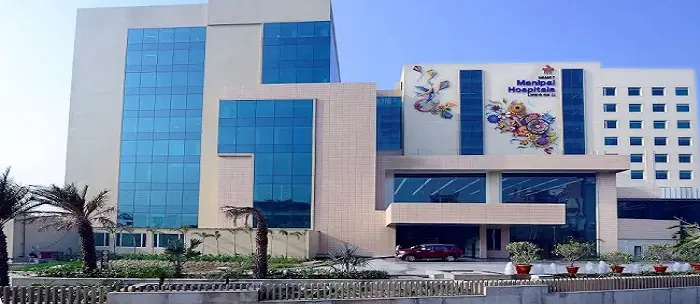
Kidney Transplant Highlights:
- Manipal Hospital Dwarka specializes in complex transplants using AI-powered diagnostics and robotic assistance
- Full-spectrum renal transplant program with long-term follow-up clinics
- Dedicated medical tourism team for international patients
7. Nanavati Max Super Speciality Hospital (Mumbai)
Address: S.V. Road, Vile Parle West, Mumbai, Maharashtra 400056
Established: 1950 | Beds: 350+ | Accreditations: NABH, ABP News Healthcare Leadership Award
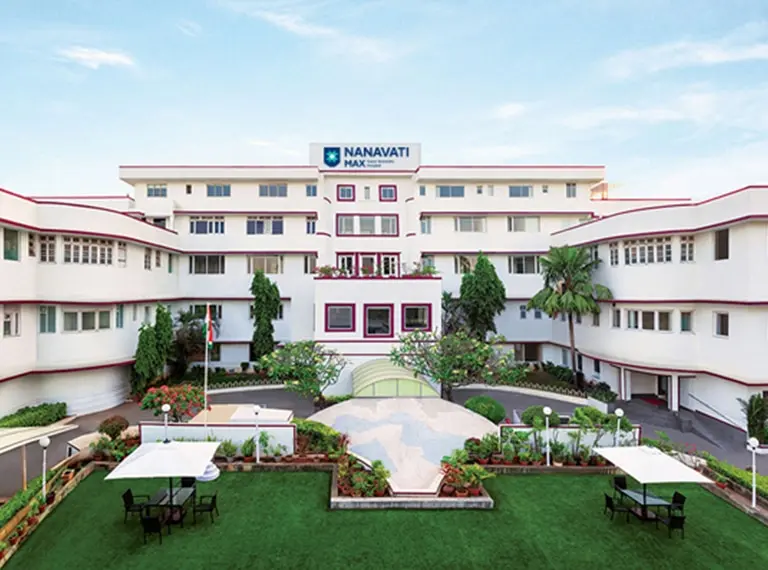
Kidney Transplant Highlights:
- Specialized Nephrology and Transplant Centre for adults and children
- Nanavati Max offers both open and laparoscopic transplant techniques
- Multilingual support and international patient coordination
8. Gleneagles Global Health City (Chennai)
Address: Cheran Nagar, Perumbakkam, Chennai, Tamil Nadu 600100
Established: 1999 | Beds: 1000+ | Accreditations: NABH, JCI, Times Healthcare Award
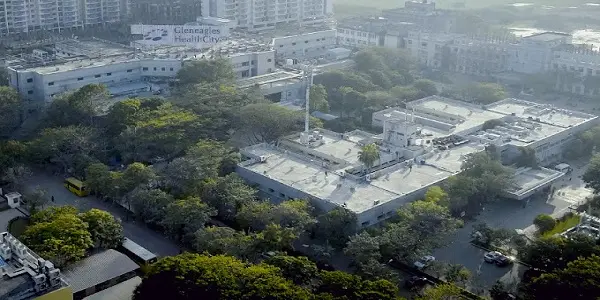
Kidney Transplant Highlights:
- India’s largest multi-organ transplant centre, including kidney-pancreas transplants
- Expertise in re-transplants and complex immunological matchings
- Hosts specialized international transplant programs for patients from 30+ countries
9. Fortis Hospital, Shalimar Bagh (New Delhi)
Address: A Block, Shalimar Bagh, New Delhi, Delhi 110088
Established: 2010 | Beds: 262 | Accreditations: NABH, Express Healthcare Excellence Award
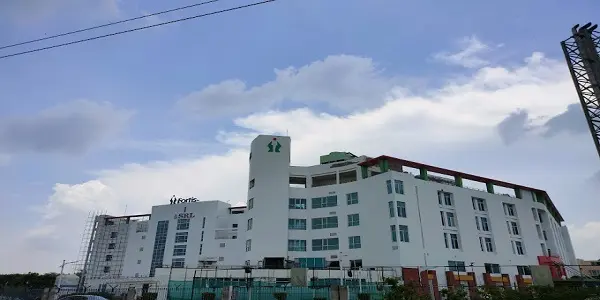
Kidney Transplant Highlights:
- Integrated transplant coordination, HLA labs, and renal ICU care
- Compassionate care model and patient education programs
- International patient desk for end-to-end support
10. Medanta – The Medicity (Gurugram)
Address: CH Baktawar Singh Road, Sector 38, Gurugram, Haryana 122001
Established: 2009 | Beds: 1600+ | Accreditations: NABH, JCI, FICCI Medical Excellence Award
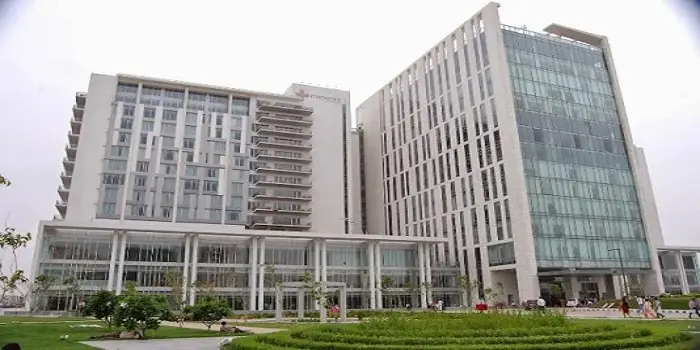
Kidney Transplant Highlights:
- Medanta Hospital is one of India’s largest kidney transplant units with advanced research and safety systems
- Expertise in laparoscopic donor nephrectomy, pediatric, and incompatible blood group transplants
- Comprehensive international patient services and global patient outreach
Top 10 Kidney Transplant Surgeons in India (2025)
India’s best kidney transplant surgeons are internationally recognized for their expertise, innovation, and high success rates. Many have trained or practiced abroad and lead advanced transplant programs catering to international patients. Here are the leading kidney transplant surgeons in India for 2025:
1. Dr. Sanjay Gogoi
Specialization: Urology & Renal Transplant Surgery
Experience: 25+ years
Current Affiliation: Manipal Hospital, Dwarka, New Delhi
Highlights:
- Pioneer in robotic kidney transplantation in India
- Expert in laparoscopic donor nephrectomy and pediatric renal transplantation
- Widely published and recognized for complex, high-risk cases
- International patient program leadership
2. Dr. Sandeep Guleria
Specialization: General Surgery, Kidney Transplantation
Experience: 30+ years
Current Affiliation: Indraprastha Apollo Hospitals, New Delhi
Highlights:
- Part of India’s first successful cadaveric transplant team
- Padma Shri awardee for transplant medicine
- Developed national organ transplant guidelines
- Renowned for ethical care and long-term patient outcomes
3. Dr. Anant Kumar
Specialization: Urology, Renal Transplantation
Experience: 35+ years
Current Affiliation: Max Super Specialty Hospital, Saket & Vaishali, New Delhi
Highlights:
- Over 3,500 kidney transplants performed
- Introduced robotic and minimally invasive techniques
- Multiple awards from the Urological Society of India
- Trainer and mentor for transplant surgeons nationwide
4. Dr. Rajesh Ahlawat
Specialization: Urology & Renal Transplant Surgery
Experience: 44+ years
Current Affiliation: Medanta – The Medicity, Gurugram
Highlights:
- World leader in robotic kidney transplant and minimally invasive urology
- Established successful transplant programs at several top Indian hospitals
- Internationally recognized for innovation and surgical outcomes
5. Dr. Mohan Keshavamurthy
Specialization: Urology, Renal Transplantation
Experience: 28+ years
Current Affiliation: Fortis Hospitals, Bannerghatta Road, Bangalore
Highlights:
- Over 3,000 transplants, including complex re-transplants
- Internationally trained in the USA and Germany
- Leader in robotic-assisted kidney transplants and transplant education
6. Dr. Sharad Sheth
Specialization: Nephrology
Experience: 35+ years
Current Affiliation: Kokilaben Dhirubhai Ambani Hospital, Mumbai
Highlights:
- Leads one of Mumbai’s highest-volume kidney transplant programs
- Expert in transplant immunology and multidisciplinary care
- Renowned educator and clinical trial contributor
7. Dr. Harsha Jauhari
Specialization: Renal Transplant Surgery
Experience: 35+ years Current
Affiliation: Sir Ganga Ram Hospital, New Delhi
Highlights:
- Chairman, Technical Advisory Committee (NOTTO)
- Shaped India’s transplant regulations and ethical standards
- Expert in both living and cadaveric donor transplants
8. Dr. H.S. Bhatyal
Specialization: Urology
Experience: 40+ years
Current Affiliation: BLK-Max Super Speciality Hospital, Delhi
Highlights:
- Over 4,000 urological and transplant surgeries
- Pioneer in North India’s transplant services
- Academic leader and mentor
9. Dr. Col. Rajeev Sood
Specialization: Urology
Experience: 35+ years
Current Affiliation: Rajiv Gandhi Cancer Institute and Research Centre, Delhi
Highlights:
- Former Dean, Army Hospital (R&R)
- Renowned for complex reconstructive and salvage procedures
- Mentor and transplant advocacy leader
10. Dr. Vikas Jain
Specialization: Urology & Renal Transplantation
Experience: 20+ years
Current Affiliation: Max Super Specialty Hospital, Vaishali
Highlights:
- Specialist in laparoscopic donor nephrectomy and ABO-incompatible transplants
- Heads a successful transplant unit with high graft survival
- Focus on international patient coordination and repeat transplants
Kidney Transplant Process in India for International Patients
India offers a structured and patient-centric pathway for foreign nationals seeking a kidney transplant. Here’s a step-by-step overview to help international patients understand what to expect during their transplant journey:
1. Sharing Medical Records & Online Consultation Initial Consultation:
- The process typically begins with an online or in-person consultation with a kidney transplant specialist.
- Document Submission: Patients share their medical history, reports, recent laboratory tests, and any imaging (such as ultrasound or CT scans).
- Preliminary Assessment: The transplant team reviews kidney function, overall health, and assesses whether the patient is a candidate for transplantation.
- Treatment Plan: If eligible, a tailored plan for further evaluation and procedural steps is shared.
2. Medical Visa Support and Documentation
- Invitation Letter: The hospital issues a detailed medical invitation and a cost estimate.
- Visa Application: Patients apply for an Indian Medical Visa (M-Visa), often valid for up to one year with multiple entries.
- Required Documents: Passport, medical records, photographs, and the hospital invitation are submitted to the Indian embassy or consulate.
- Concierge Services: Many leading hospitals assist with visa paperwork, travel arrangements, and local accommodation, ensuring a smooth relocation to India for surgery.
3. Arrival in India and In-Person Evaluation Comprehensive Check-Up:
- After arrival, the patient undergoes a thorough evaluation at the hospital, including blood and urine tests, chest X-ray or CT scan, ECG, and overall assessment of heart, liver, and kidney function.
- Screening for Infectious Diseases: Tests for HIV, hepatitis B & C, and tuberculosis are standard.
- Psychological and Nutritional Assessment: Supporting readiness and resilience for transplant and recovery.
4. Donor Selection and Approval Process for International Patients
- Donor Requirement: International patients must be accompanied by a living donor, usually a parent, sibling, spouse, or other near relative. The donor must be aged 18 or above, physically and mentally fit, and able to provide proof of relationship and willingness to donate.
- Pre-Arrival Screening: Before arrival in India, both patient and donor share their medical records with the hospital’s transplant team for preliminary assessment. The hospital provides guidance on all documentation needed, including proof of family relationship, consent affidavits, and medical records.
- Legal and Embassy Documentation: Both donor and recipient are required to present documents such as passports, relationship certificates, and notarized affidavits. The relationship between donor and recipient must also be certified by the embassy (or authorized government official from their country of origin).
- In-Person Medical & Legal Evaluation: Upon arrival, the hospital conducts thorough health and compatibility assessments for both patient and donor. After successful medical clearance, both meet the hospital or government Authorization Committee, which reviews all documentation and confirms that the donation is voluntary and compliant with Indian law.
- Surgical Procedure: Kidney transplant surgery is performed under general anesthesia, usually lasting 3–4 hours.
- Immediate Post-Op Care: Patients are shifted to a transplant ICU for close monitoring during the initial phase.
5. Post-Operative Care and Rehabilitation
- Hospital Stay: Initial recuperation typically lasts 2–3 weeks, comprising time in the ICU and standard recovery wards.
- Immunosuppressive Therapy: Medication is administered to prevent rejection of the new kidney.
- Routine Monitoring: Bloodwork and organ function are closely tracked; patients receive ongoing nutritional and psychological support.
6. Long-Term Follow-Up & Returning Home Comprehensive Discharge:
- Before leaving India, patients are provided with a detailed summary, medication plan, and recommendations for follow-up testing.
- Remote Support: Most hospitals offer online teleconsultations and coordinate care handovers with doctors in the patient’s home country.
- Recommended Stay: International patients are often advised to stay in India for 2–3 months after surgery to ensure stable recovery and effective management of any post-operative issues.
What Is a Kidney Transplant and How Does It Work?
A kidney transplant is a surgical procedure where a healthy kidney from a donor is transplanted into a person whose kidneys have permanently failed—most often due to chronic kidney disease (CKD), diabetes, or high blood pressure. It is widely considered the most effective long-term treatment for end-stage renal disease (ESRD), offering a better quality of life and higher survival rates than dialysis.
Types of Kidney Transplants
For international patients in India, living donor kidney transplants are the standard option:
- Living Donor Transplant: A healthy kidney is donated by a living person, typically a close family member (parent, sibling, or spouse). This type has excellent outcomes, shorter wait times, and better long-term success than deceased donor options. Foreign nationals coming to India must bring their own eligible donor.
- Deceased Donor Transplant: In rare cases (for Indian citizens only), the kidney is taken from a donor declared brain-dead. However, this route is not available for international patients under current Indian law.
Also check: Urology Treatments
How the Kidney Transplant Process Works
Here’s an overview of the step-by-step kidney transplant process for international patients in India:
1. Pre-Transplant Evaluation (Patient & Donor):
- Physical examination for both recipient and donorBlood and tissue tests (blood group, HLA typing)
- Imaging (ultrasound, ECG/2D echo, kidney scans)
- Cross-matching to assess compatibility
- Psychological and nutritional assessment
- Financial, legal, and ethical documentation clearance
2. Surgical Procedure:
- The healthy donor kidney is implanted in the patient’s lower abdomen (iliac fossa)
- Blood vessels of the kidney are connected to the recipient’s iliac vessels
- The ureter is attached to the bladder to enable urine flow
- The patient is carefully monitored in a dedicated transplant ICU post-surgery
3. Post-Operative Management:
- Immunosuppressive medications are started immediately to prevent rejection
- Vital signs, kidney function, and infection markers are closely tracked
- A renal-specific diet and lifestyle changes are recommended for long-term success
4. Long-Term Aftercare:
- Monthly checkups followed by quarterly reviews
- Routine blood tests to track creatinine levels and monitor drug efficacy
- Lifelong medication, healthy eating, hydration, and blood pressure control
- Teleconsultations are available for international patients after returning home
A successful kidney transplant can dramatically improve your energy levels, extend your life by decades, and allow you to return to a normal routine—including work, travel, and family life.
Also Check: Urosurgery Doctors in India
Why Would Someone Need a Kidney Transplant?
A kidney transplant becomes essential when both kidneys lose the ability to filter wastes and maintain fluid and electrolyte balance—a life-threatening condition known as end-stage renal disease (ESRD). The major conditions that may lead to ESRD and necessitate a kidney transplant include:
- Chronic Kidney Disease (CKD): Most common cause, often due to long-standing diabetes or hypertension, where kidney function progressively worsens over months or years.
- Polycystic Kidney Disease (PKD): An inherited disorder where multiple cysts damage kidneys over time.
- Glomerulonephritis: Inflammation of the kidneys’ filtering units, which can cause irreversible harm if not treated.
- Reflux Nephropathy: Long-term backflow of urine into the kidneys damages renal tissue.
- Congenital Abnormalities: Structural defects present from birth that worsen as the child grows.
- Recurrent Kidney Infections or Pyelonephritis: Frequent severe infections gradually scar and impair the kidneys.
- Drug-Induced Nephropathy: Chronic use of some medications (especially painkillers or certain antibiotics) can lead to permanent kidney failure.
For many patients with ESRD, kidney transplant is the most effective treatment, offering longer life expectancy and a better quality of life compared to lifelong dialysis.
Who Is Eligible for a Kidney Transplant? (Eligibility Criteria)
Kidney transplant eligibility is determined through a comprehensive evaluation of medical, psychological, and practical factors:
Medical Suitability:
- Confirmed end-stage renal disease or irreversible kidney failure requiring regular dialysis.
- Free from active infections, uncontrolled cancer, or severe heart/liver disease.
- Good general health or well-controlled chronic conditions.
Age: Most centers consider adults between 18 and 65 years, though exceptions are possible for healthy older adults; children may also be eligible in some cases.
Mental and Emotional Health:
- Psychological readiness to handle surgery, follow-up care, and lifelong medication.
- Supported by a stable social/family network for post-surgery care and adherence.
Substance Use: No recent or ongoing abuse of alcohol, tobacco, or illicit drugs. Patients typically need a documented period of abstinence.
Financial Readiness: Ability to bear the costs of surgery, hospitalization, and lifelong medication—even though these are generally more affordable in India.
Availability of a Suitable Donor:
- For international patients, a willing and medically suitable living donor, ideally a close family member, must be available for evaluation.
- Donor and recipient must have compatible blood groups and suitable tissue matching; crossmatch testing is essential before proceeding.
Commitment to Follow-Up: Willingness to attend regular hospital visits, undergo routine lab tests, and follow medical advice for the rest of your life.
Types of Doctors Involved in a Kidney Transplant Program
A successful kidney transplant is the outcome of coordinated efforts by multiple specialists who handle different phases of the treatment journey:
Nephrologist: Acts as the primary care provider for kidney-related issues. They diagnose ESRD, manage dialysis, prepare the patient pre-transplant, and monitor post-transplant kidney function.
Urologist/Transplant Surgeon: Performs the actual kidney transplant surgery, including graft placement, vascular connections, and ensuring minimal surgical complications.
Anesthesiologist: Manages anesthesia during surgery and monitors critical functions like heart rate, blood pressure, and oxygenation.
Immunologist: Crucial for assessing donor-recipient compatibility. They oversee tissue typing, crossmatch tests, and manage immunosuppressive protocols.
Pathologist: Analyzes biopsy samples to detect rejection signs or infections.
Radiologist: Performs diagnostic imaging, such as renal ultrasounds and CT scans, to evaluate the kidney before and after surgery.
Psychiatrist/Psychologist: Assesses mental readiness and supports patients in coping with stress, anxiety, or depression linked to chronic illness and transplantation.
Dietitian/Nutritionist: Helps in preparing a renal-friendly diet plan pre- and post-transplant, ensuring optimal nutritional status.
Transplant Coordinator: Bridges the gap between doctors, patients, and donors. They facilitate documentation, ethical approvals, counseling, and follow-up scheduling.
Baani Singh
Author
Baani Singh is a Trainee Intern specializing in Content and Brand Management at HOSPIDIO. With a keen interest in healthcare communication, she contributes to creating informative and engaging content that bridges the gap between medical services and patients seeking treatment abroad. Her work supports HOSPIDIO's mission to provide accessible and transparent medical travel solutions.
Sasmita
Reviewer
Sasmita is a Marketing Specialist at Hospidio, a leading medical travel company. With expertise in Google Ads, Facebook Ads, and SEO, she plays a pivotal role in driving international leads for healthcare services in India. In addition to her digital marketing prowess, Sasmita is passionate about creating informative and research-based content. She writes extensively about treatment options available in India, the leading hospitals, and the surgeons that provide specialized care. Her blog posts also explore into new medical technologies and breakthroughs in the healthcare field, with the aim of educating international patients on the benefits of traveling to India for medical treatment.


